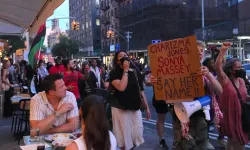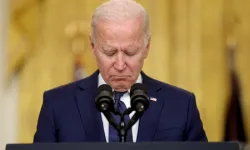Croatian Prime Minister Andrej Plenkovic stated that Croatia is a transition country and that they will not import grain from Ukraine.
In a statement to the country's press, Plenkovic said that Ukrainian President Volodymyr Zelenskiy and Ukrainian ministers were informed that his country would not import grain from Ukraine.
"Croatia's position and desire is to be a transit country, not a country where cheaper grain than ours will be imported from Ukraine and our farmers will have problems," Plenkovic said.
With the outbreak of the Ukraine-Russia war, a significant amount of grain and food products from Ukraine began to be shipped by land to Eastern and Central European countries. In particular, Ukrainian agricultural products entered the markets of the border countries of Poland, Hungary, Romania, Slovakia and nearby Bulgaria.
The cheap Ukrainian grain and food products have upset farmers in these countries and governments have imposed bans on Ukrainian products. In order to address the concerns of countries against Ukrainian grain imports, the EU Commission had prepared a plan that included additional support for farmers and restrictions on some Ukrainian products if the transit of products was allowed.
Accordingly, on May 2, the EU introduced temporary measures to prevent Poland, Hungary, Romania, Slovakia and Bulgaria from importing wheat, corn, rapeseed and sunflower from Ukraine.
Although Poland, Hungary and Slovakia requested a further extension of the EU measures, they were not extended by the EU Commission and expired on September 16. Poland, Hungary and Slovakia announced that they would impose their own bans after the EU Commission failed to extend the ban on imports of grain products from Ukraine.
Ukraine has also initiated legal proceedings at the World Trade Organization against this practice.
Bad news for Ukraine
Pointing out that Croatia, a member of the European Union (EU), is only a transit country for Ukrainian grain, Plenkovic announced that they will not import cheaper Ukrainian grain.
Trending news

Snoop Dogg to carry the Olympic torch

Lily James Expresses Admiration for Hailey Bieber’s Rhode Skincare Line

Taylor Tomlinson Will Explore Her Faith and Sexuality on Tour!

'Alien mummy' in Peru raises eyebrows

Scandal in the heart of Europe: Child abuse in a church!

Kamala Harris’ Running Mate: Here’s Who Could Be Her VP After Biden Drops Out And Endorses Her







